10 Ways VARs and Vendors Give Back To the Community
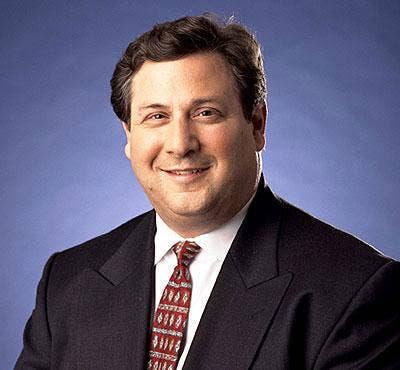
For the fourth consecutive year, distributor Avnet, in coordination with the Arizona Corporate Broadcast Center (AZCBC), Modavox and On Scene Productions, this fall helped military families record a free five-minute video message to their loved ones serving overseas.
Each family receives a DVD from the AZCBC to be sent to its relative deployed overseas. Modavox will also host the video messages on its Web site and provide the families with individual links to share with their troops and anyone else who might want to view the messages.
"We do a lot of wonderful things in the community to support folks and also enhance our brand, but really this has been a very selfish act on my part all these years to do this and feel like a million bucks when someone hugs you to say thanks," said Al Maag, Chief Communications Officer, Avnet. "I pray we can stop doing this soon because these families are so proud but scared for their loved ones which I hate. I want us to do these in peace time only."
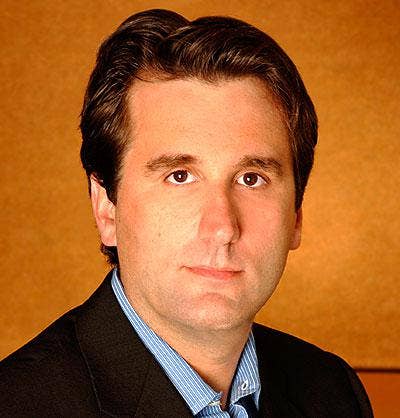
New York-based solution provider Bluewolf donates one percent of its profits to philanthropy, and employees are involved in programs to promote literacy, assist the public schools and help the homeless. But one year ago, Michael Kirven, co-founder and principal of Bluewolf, said, "we realized we were good at building things." So the company forged ahead and created "built" its own scholarship program for underprivileged high school seniors who want to pursue a career in technology.
The scholarship grew out of the relationship the company has forged with New York Public Schools; Bluewolf has formed a committee with CIO-level customers and employees that visit city high schools and conduct technical presentations so teenagers get an idea of what technical career are available.
"We're doing a small part to help an underprivileged kid who's interested in tech and science," said Kirven. "It's a small gesture in which we get to promote what we are passionate about and also help a kid.
This year, the award is $3,000; applications are due Feb 15, 2008. Kirven hopes to grow the scholarship award program from one recipient in 2008 to six in 2009. The winner of the scholarship also receives a paid internship at Bluewolf.
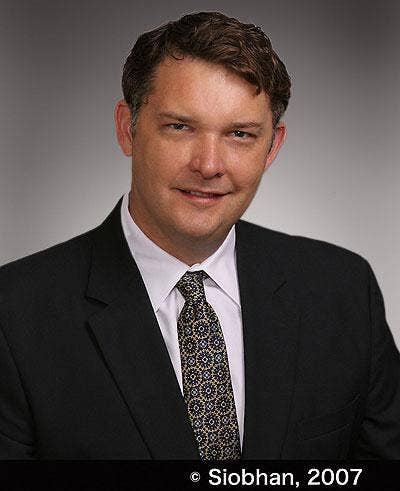
Summers in Austin, Texas, can get mighty hot. In fact, the heat can be deadly, particularly for the disabled elderly, who may not have access to air conditioning, fans or family support. Some elderly people become confused and afraid and won't even open a window in their homes, despite the sweltering heat. Recognizing the seriousness of the situation, BMC Software offers its continued support to Family Eldercare, an organization that assists adults living with disabilities in the Central Texas area.
"We wanted to give back to the community and to sponsor local charities," said Jim Mulkey, vice president of research and development at BMC Software. "We surveyed employees and found that Family Eldercare reflected what the employees wanted We have a pretty mature pop, and many have parents getting into that age." (Other charities supported by BMC include Habitat for Humanity and Coats for Kids.)
One of the activities Family Eldercare runs is an annual "Fan Drive." Employees donated money for the purchase of fans, which was matched by BMC. Through the drive, employees got involved with the organization, collecting money and fans and then helping to distribute fans to those who need them.
The good deeds haven't gone unnoticed: In the Fall, Family Eldercare came to BMC and threw an old-fashioned ice cream social as a thank you for the company's efforts.
"It was a pretty nice day," said Mulkey.
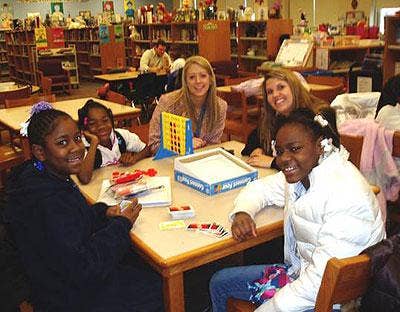
For more than 20 years, the co-workers at computer reseller CDW have contributed millions of dollars and thousands of volunteer hours to a number of national and local charitable activities, including the Big Brother/Big Sister organization.
Seven years ago, the Chicago-area group approached CDW to help with one-on-one mentoring of underprivileged kids, who typically live with one parent, or with extended family. The one-on-one idea wasn't feasible, but they adapted the plan so the weekly mentoring sessions take place within groups. Each child is assigned an individual CDW coworker, but they can tap into the expertise of any of the mentors. And, if volunteers must miss a week because of business travel, the kids' routines are not disrupted because they simply participate in another group's session that week.
"The program has gone so well that other companies are looking to us as best practice," said Gary Ross, general manager of community relations. Added Sandy Pierantoni, community relations coordinator, "We've been informed by affiliates of Big Brothers/Big Sisters that when the group does presentations, it uses CDW as an example."
Approximately 65 CDW employees from two CDW locations are "Bigs" -- volunteers with the Big Brother/Big Sister organization. In addition to the volunteer hours, CDW gave two $25,000 gifts to two Chicago-area Big Brother/Sister groups in 2007.
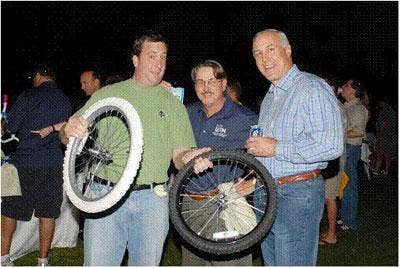
Underprivileged children from a Native American reservation in Arizona received bicycles hand-built by Dimension Data employees. In November 2006, at the solution provider's annual sales event, staffers assembled bicycles as part of the conference's team building event.
Each team built two bikes, one for a boy and one for a girl. They then created a note for the child, using craft supplies. "What the team members didn't know was that after the bikes were built and the cards were made, the children were bussed in from the Indian reservation, said Denise Messineo, SVP of Human Resources for DD America. "These are kids not normally able to own a bicycle, ages 8 to12. They had won the bikes as a result of doing well in school. Each kid was introduced to each team. It was a heartwarming thing to see.
"The team building, bike-building event kicked off our fiscal 2007 charitable activities," continued Messineo. Last year, Dimension Data, a $3.8 billion IT services and solutions provider, launched a corporate responsibility program. Among the highlights:
- The Edison, N.J., office, in conjunction with Newark's Office of the Mayor and several other local companies, renovated Apostle's House, a homeless shelter in Newark, N.J.
- Dimension Data created an internship program for Virginia Tech engineering students, which includes a summer internship with Dimension Data along with a tuition stipend for the next year. In addition, the Herndon, Va., office donated $300 to the Hokie Spirit Memorial Fund, which has been established by Virginia Tech to cover expenses.
- DD raised $10,000 for St. Jude's Children's Hospital through a corporate-sponsored team building event.

Sometimes, the big buffet meal with ice sculpture just doesn't hit the spot at holiday time.
That was the employee sentiment in 2007 at eCopy, a software company based in Nashua, N.H. Through an employee survey, eCopy determined that the employees would rather forgo their traditional holiday party and instead donate the $25,000 the party would cost to a local charity: The Nashua Telegraph's Santa Fund. The donation -- the largest in the fund's history -- helped aid needy families. "We took a page out of Warren Buffet's book, and rather than start our own charity, we decided to take the money and give it to [an organization] that was already doing good," said Bill Brikiatis, eCopy director of corporate marketing. The Santa Fund provides toys and clothing for families in need and is run by the local Nashua newspaper, The Telegraph, and two agencies that help register families and distribute the gifts: the Salvation Army and the Nashua Pastoral Care Center. The Telegraph reported that eCopy's gift was triple the previous high for a donation.
"It's been a particularly difficult year for folks, and this gave us the feeling of really helping the community," Brikiatis said.

Imagine seeing executives racing down the aisles of your local retailer and loading shopping carts with toys with blazing speed. That's exactly the scene that took place last Fall during The CEO Challenge benefiting the Family Giving Tree.
National Semiconductor's CEO Brian Halla, chairman of the charity's Holiday Giving Campaign, created the CEO Challenge in 2005 to generate awareness -- and gifts -- for the Family Giving Tree. Executives raced through aisles of a San Jose, Calif., Target Store, pushing shopping carts and emptying store shelves. CEOs spent their own money -- not company funds -- to buy the gifts.
"The checks we signed are worth every penny if a few kids, who might not have otherwise been able to do so, can smile on Christmas morning," Halla said. "It was inspirational to see so many people working so hard for such a good cause."
The challenge took place November 30, and resulted in $188,249 worth of gifts, which the CEOs paid for with their own money. National Semiconductor, NVIDIA, Palm, SGI, Sandisk and Symmetricom participated in the event.

Polycom, a unified communications provider, uses its expertise in video technology to assist children's charities, notably Medical Missions for Children. MMC is a non-profit organization helping more than 26,000 catastrophically ill children in underserved areas of the United States and in more than 100 other countries. Polycom's relationship with MMC dates back more than eight years and during that time has donated more than $4 million in products and funding to support the program. Volunteer physician specialists in the U.S. and Europe help sick children around the world through donated Polycom video collaboration solutions.
"Video conferencing technology removes the distance barrier and can literally save lives," said Bob Hagerty, chairman and CEO of Polycom. "We are proud to encourage face-to-face, live interactive communications over video for doctors and their remote patients or for students in Arab countries, Israel, Africa, and the U.S. who can meet to discuss issues, form friendships and discover they have more in common than not."
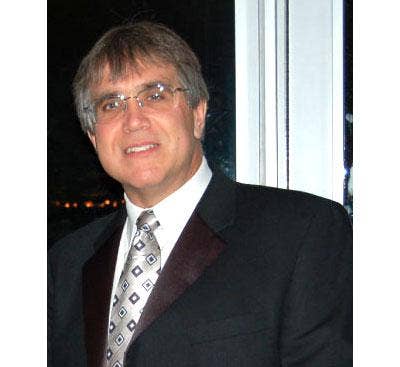
In December, solution provider SBS Group donated presents and linens to Harbor House, a shelter for runaway and abused teens. SBS provides various software and technology solutions to mid-size businesses in the New York, New Jersey and Pennsylvania regions. An especially welcome gift was also included: a Target gift card for each child.
"We remember that now is the time to give to those less fortunate," said James R. Bowman, president of SBS Group (pictured left).
Harbor House, Ocean County, N.J., is a safe haven for runaway, homeless, abused, abandoned or neglected youths ages 10 to 21. The organization offers food, clothing, and shelter to teens who have left their homes.
Roughly 30 teenagers live at Harbor House; the organization provides aid to another 10 to 15 families within the community. "This experience has served as a reminder of our blessings," said Erin Davey, SBS Group office manager, "and, in the grand scheme of things, how lucky we all are."
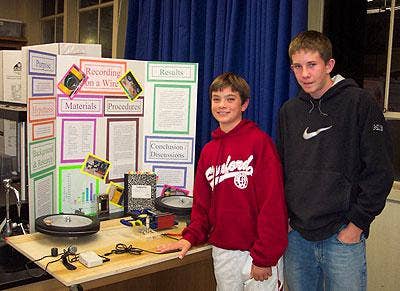
During Symantec's fiscal year 2007, the company donated a total of $12.4 million in cash and software, and employees recorded 6,000 volunteer hours to various volunteer efforts, including an educational nonprofit called Science Buddies.
Science Buddies aims to provide a support system for educators and students who want to participate in science fairs. The organization has a Web site with tools such as the Topic Selection Wizard, which helps match students with appropriate topics.
"We thought it important to engage employees and through Science Buddies, employees could develop 'starter' kits, be involved with the e-mentoring program, and mentor students through online chat," said Lora Philips, Symantec senior manager of Community Relations. "When we started, there were other scientific areas, but no computer science area. So we helped develop that."
During the past three years, Symantec has given Science Buddies $100,000. Two employees authored project ideas that have helped more than 30,000 registered student users since January 1, 2007. Another employee who is an SEO expert helped Science Buddies' director of programs optimize the group's website, which is on target to serve 6.5 million unique visitors by the end of 2007.